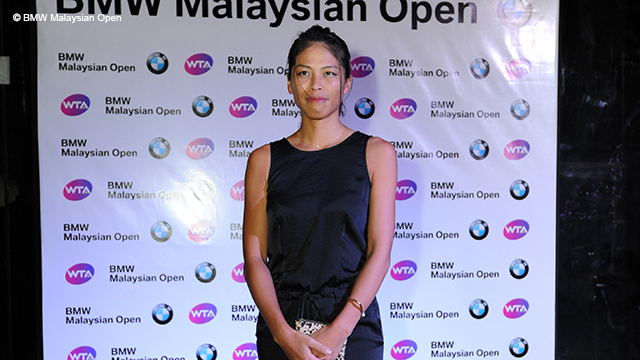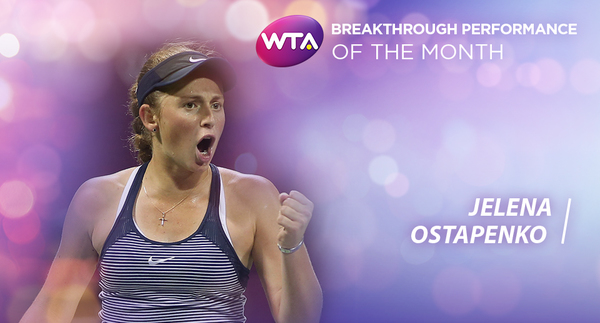News | WTA Tennis English
Four countries fight for two spots in the 2017 Fed Cup Final this weekend as Belarus hosts Switzerland, which looks to make its first final in nearly two decades. Half a world away in Florida, the United States finds itself heavily favored against a Czech Republic squad. wtatennis.com previews the semifinals, and all the playoff action as nations look to seal up their positions for 2018.
The #FedCup semifinals are just 2️⃣ days away! Time to get excited! pic.twitter.com/YsLasbpAfb
— Fed Cup (@FedCup) April 20, 2017
Belarus vs. Switzerland
Venue: Chizhovka Arena, Minsk, Belarus
Surface: Hard, Indoor
A Swiss squad at full strength will take on the Cinderella story of this year’s Fed Cup in Minsk for a place in November’s Fed Cup final.
Belarus, without the services of Victoria Azarenka, pulled off a stunning victory against the Netherlands in the quarterfinals in February, as Aliaksandra Sasnovich and teenager Aryna Sabalenka led the red and green to a 4-1 victory. Those two will be tasked with singles action once again, as Sasnovich is slated to play Viktorija Golubic for the second time in three weeks first up on Saturday, while Sabalenka will face Timea Bacsinszky.
?? Belarus and ?? Switzerland meet in this weekend's semifinal, but who will advance to the #FedCupFinal? pic.twitter.com/Sq10xgC1M5
— Fed Cup (@FedCup) April 20, 2017
Should the tie come down to the deciding doubles, Olga Govortsova and 2016 Australian Open girls’ champion Vera Lapko have been tabbed to face Martina Hingis and Belinda Bencic. With a victory, Hingis would appear in a Fed Cup Final for the second time in her career, as she played three rubbers in Switzerland’s 3-2 defeat to Spain in 1998.
Thank you @belarustennis for this beautiful evening! #official #evening @FedCup #BLRSUI pic.twitter.com/6nIR3VBG5D
— Swiss Tennis (@swiss_tennis) April 20, 2017
Belarus and Switzerland last faced off in the World Group II Play-offs in 2012, as Bacsinszky won the deciding rubber against Sasnovich in her team’s 4-1 win.
R1: Aliaksandra Sasnovich (BLR) v Viktorija Golubic (SUI)
R2: Aryna Sabalenka (BLR) v Timea Bacsinszky (SUI)
R3: Aliaksandra Sasnovich (BLR) v Timea Bacsinszky (SUI)
R4: Aryna Sabalenka (BLR) v Viktorija Golubic (SUI)
R5: Olga Govortsova/Vera Lapko (BLR) v Belinda Bencic/Martina Hingis (SUI)
Though she’s not on the court for her country in this tie, Azarenka has been present at the Chizhovka Arena during practice in support of the team, and will be on hand for the weekend’s action.
Former #1 in @FedCup team of Belarus @vika7 and acting #1 @_Sasnovich 🙂 Наша гордость – наши спортсменки!#tennisby #FedCup #BLRSUI pic.twitter.com/9BnQeNjMV1
— BY.TENNIS (@belarustennis) April 20, 2017
Happy to see each other again? @BelindaBencic @TimeaOfficial @vika7 @belarustennis @FedCup #BLRSUI pic.twitter.com/bHJSOnJn2X
— Swiss Tennis (@swiss_tennis) April 20, 2017
Czech Republic vs. USA
Venue: Saddlebrook Resort, Florida, USA
Surface: Clay, Outdoor
It’s not often that the Czech Republic and “underdogs” can be used in the same sentence regarding Fed Cup this decade,
While the Czech Republic has won five of the last five six Fed Cups, the team that’ll face the United States in Florida with a trip to a fourth straight final at stake is a young one. Leading the charge for the Czech Republic is World No.38 Katerina Siniakova, joined by Denisa Allertova alongside debutants Kristyna Pliskova and Marketa Vondrousova.
The best nation in #FedCup history takes on the best nation in the last decade when ?? USA and ?? Czech Republic face off in the semifinal! pic.twitter.com/7pTyv70HX5
— Fed Cup (@FedCup) April 21, 2017
Both Siniakova and Allertova have been named to Czech Fed Cup squads before, while Pliskova and Vondrousova have Fed Cup experience of a different sort. The 17-year-old, who made a stunning run to the title at the Ladies Open Biel Bienne earlier this month, was a member of the team that won the Junior Fed Cup in 2015, while Kristyna called up a team stalwart for a little advice — twin sister and World No.3 Karolina, who’s played in six ties for their country.
“Of course, she told me a lot and I asked a lot of questions,” Kristyna told fedcup.com’s Sandra Harwitt in Florida. “I asked about everything – clothes, the matches, and how is the team.”
For the United States, Australian Open semifinalist Coco Vandeweghe will lead the Americans at home for the second straight tie alongside Shelby Rogers, while World No.1 Bethanie Mattek-Sands will hold down the fort in doubles alongside Lauren Davis for the stars and stripes should the tie feature a live fifth rubber.
How well do the ?? USA #FedCup team know each other?? ? pic.twitter.com/VgEpgCiD3F
— Fed Cup (@FedCup) April 21, 2017
R1: CoCo Vandeweghe (USA) v Marketa Vondrusova (CZE)
R2: Shelby Rogers (USA) v Katerina Siniakova (CZE)
R3: CoCo Vandeweghe (USA) v Katerina Siniakova (CZE)
R4: Shelby Rogers (USA) v Marketa Vondrusova (CZE)
R5: Lauren Davis and Bethanie Mattek-Sands (USA) v Denisa Allertova and Kristyna Pliskova (CZE)
In the World Group Play-offs, Angelique Kerber returns to Fed Cup after missing February’s tie against the United States to lead Germany against Ukraine in what could be the most evenly-poised tie of the weekend. Kerber and Julia Goerges have been tabbed in singles against Elina Svitolina and Lesia Tsurenko in Stuttgart in a tie that could come down to the deciding doubles rubber of Laura Siegemund and Carina Witthoeft against Olga Savchuk and Nadiia Kichenok.
Elsewhere, France hosts Spain as Kristina Mladenovic takes her place as France’s No.1 in her top 20 season, while Russia fields three WTA title-winners (Elena Vesnina, Anastasia Pavlyuchenkova and Daria Kasatkina) at home against Belgium. Wrapping up the World Group Play-offs, Slovakia and the Netherlands will meet for the second straight year, as the Slovaks will rely on the youth of Jana Cepelova and Rebecca Sramkova in singles play.
Eight countries will also compete in the World Group II Play-offs, as Sara Errani leads a young Italian team against Chinese Taipei; Australia travels to Serbia; Simona Halep and Romania hosts Johanna Konta and Great Britain in an anticipated tie; and Yulia Putintseva and Yaroslava Shvedova look to lead Kazakhstan to uncharted territory for 2018 in Canada.












